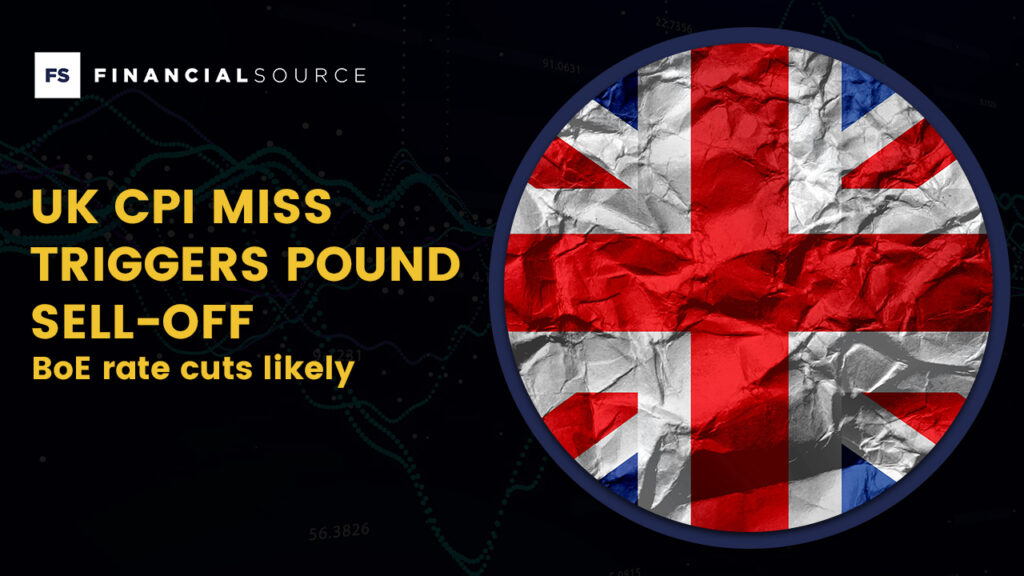UK CPI Miss Triggers Pound Sell-Off, BoE Rate Cuts Likely

The latest UK inflation data has taken the market by surprise, delivering a notable miss. The headline inflation rate fell to 1.7% in September 2024, down from 2.2% in August, marking the lowest reading since April 2021. Core inflation also moderated significantly, down to 3.2% from 3.6%, and services inflation, a key metric for the Bank of England, slowed to 4.9% from 5.6%. These figures came in well below market expectations and are raising new questions about the trajectory of interest rates in the UK.
This miss is particularly significant for the Bank of England (BoE) as it faces increasing pressure to pivot towards a more aggressive rate-cutting cycle. Governor Andrew Bailey has already hinted that the Bank could adopt a more “activist” approach to monetary policy if inflation data allows it. With inflation falling faster than anticipated, markets are now speculating that the BoE may begin cutting rates as early as November, starting with a 25 basis point reduction. Additional cuts are likely to follow in December and early 2025 as the BoE seeks to steer the economy away from a prolonged slowdown.
One of the major contributors to the sharp fall in inflation was a dramatic 34.7% drop in airfares—the largest September decrease in over two decades—alongside declines in transport and fuel prices. Petrol prices, for instance, fell to 136.8 pence per litre, compared to 153.6 pence a year earlier. Other sectors, such as housing, utilities, and household goods, also saw price reductions, further easing inflationary pressures.
Despite these favourable trends for inflation, concerns remain. The labour market, although showing signs of cooling, has yet to provide clear signals that wage growth is following suit. UK unemployment remains low at 4%, and wage growth remains elevated, which could complicate the BoE’s efforts to bring inflation sustainably under control.
In the markets, the pound has come under pressure as traders digest the implications of this inflation miss. GBP/USD has slipped below key support levels, and EUR/GBP has started to push higher as market participants position for further pound weakness. The inflation miss, coupled with the prospect of more aggressive BoE rate cuts, has shifted market sentiment, with traders now anticipating a softer pound in the near term.
Looking forward, the focus will be on key data releases and BoE communications as markets await clarity on the timing and magnitude of future rate cuts. Investors are also watching for any developments from the UK’s upcoming fiscal policy, with Chancellor Rachel Reeves’ first budget set to be announced on October 30, which could have further implications for sterling.
For today, the market strategy appears clear: selling rallies in GBP/USD and positioning for potential further downside in the pound as rate cut expectations solidify.